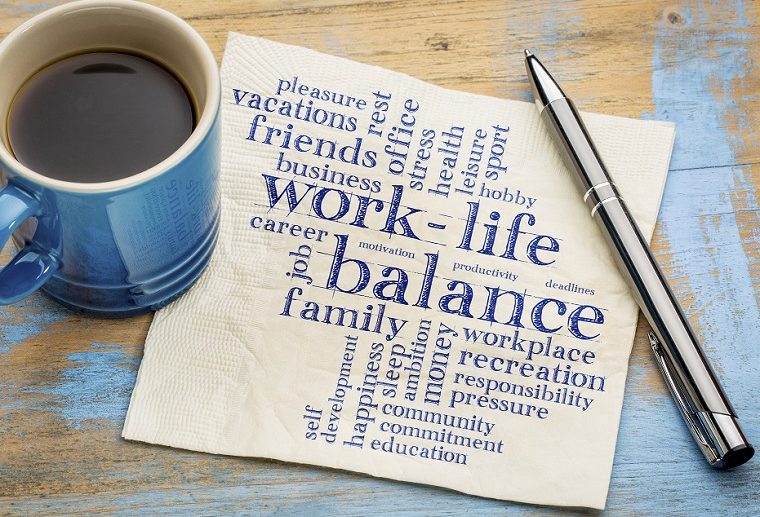
The week of March 10- 16, 2019 is Sleep Awareness Week which means you should be getting plenty of ZZZs before heading off to doing your daily tasks. Getting a good night’s sleep for many is a natural activity that people can do. While rest may seem like the most natural thing in the world for people to do, many people may have sleep disorders and sleeping habits that they don’t know about, causing long term consequences. Actually, nearly 7 out of 10 Americans say they experience frequent sleep problems. Sleep Awareness Week is a holiday all about educating people about their sleeping habits and how they can effectively change the way they sleep.
This year’s theme “Begin with Sleep” highlights the importance of good sleep health for individuals to best achieve their personal, family, and professional goals.
The week-long “Begin with Sleep” campaign will provide valuable information about the benefits of optimal sleep and how sleep affects health, well-being, and safety. Some tools available include the National Sleep Foundation’s Bedtime Calculator, which encourages individuals to plan their sleep.
The National Sleep Foundation has released the results of its recent Sleep in America® poll, fielded alongside the organization’s quarterly Sleep Health Index®.
Should Your Sleep Be Evaluated?
To determine whether you might benefit from a sleep evaluation, ask yourself the following questions:
- Do you regularly have difficulty getting to sleep or staying asleep?
- Do you have a problem with snoring? Has anyone ever told you that you have pauses in breathing or that you gasp for breath when you sleep?
- Are your legs “active” at night? Do you experience tingling, creeping, itching, pulling, aching or other strange feelings in your legs while sitting or lying down that cause a strong urge to move, walk or kick your legs for relief?
- Are you so tired when you wake up in the morning that you cannot function normally during the day?
- Does sleepiness and fatigue persist for more than two to three weeks?
If you answered yes to any of these questions, then a complete sleep evaluation should be considered and discussed with your physician. Before your visit, it may be helpful to track your sleep patterns and medications.
History of Sleep Awareness Week
Sleep can be considered an underappreciated aspect of peoples lives. Poor sleep is heavily linked to weight gain, decrease concentration and productivity, increase the risks of heart diseases and strokes, is connected to depression, and can affect emotional and social interactions.
Disorders such as insomnia, sleep apnea, narcolepsy, and night terrors can significantly change how people interact and live throughout their lives. Sleep problems have also contributed to a larger issue: a lack of understanding about health.
Sleep Awareness Week aims to highlight the importance of good sleep and educate people about how they can better improve their sleeping habits.
Founded by the National Sleep Foundation, Sleep Awareness Week gives people the opportunity to learn about why sleep is important, how good sleep can improve health and whether or not their sleeping habits may be a problem that needs to be checked on.
The importance of this holiday comes from the fact that while sleep medicine is considered to be a practice, many people don’t check up on what their sleeping habits can do to their health. Hence, the National Sleep Foundation each year takes this opportunity to give people seminars, informative brochures, and assessments about sleep to better improve people’s lives.
How to Celebrate Sleep Awareness Week
Sleep Awareness Week gives people a chance to see if they have sleep problems. Promote good sleep using social media by using the hashtag #SleepAwarenessWeek. Convince your friends and family to see if they need an assessment of their sleeping habits.
Ask your doctor if you can get an appointment with a sleep professional to know if you need to change your sleeping habits. Head on over to the National Sleep Foundation to learn about the potential health risks and disorders that may arise from a lack of sleep. Take their online poll to see if you have any sleeping disorders.
Here are some great excuses if caught sleeping at work:
- “It’s okay: I’m still billing the client.”
- “They told me at the blood bank this might happen.”
- “This is just a 15-minute power nap like they raved about in that time-management course you sent me to.”
- “I was working smarter, not harder.”
- “I was doing a highly specific Yoga exercise to relieve work-related stress.”
- “I wasn’t sleeping! I was meditating on the mission statement and envisioning a new paradigm!”
- “This is one of the seven habits of highly effective people!”
- “I was testing my keyboard for drool resistance.”
- “I’m actually doing a “Stress Level Elimination Exercise Plan” (SLEEP).”
- “Statistics prove that people who take a short nap after lunch get more accomplished than people who don’t.”
- “I was cross-training for telecommuting.”
Cited from: Sleep Awareness Week
